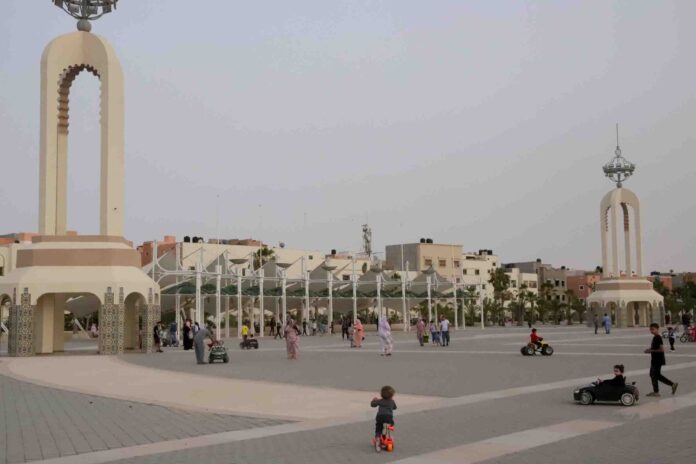By Eleni Vasiliki Bampaliouta
After Washington, the Israeli government has also decided to “recognize Morocco’s sovereignty” in the disputed region of Western Sahara, as announced by the government in Rabat a week ago. The geopolitical background in the region is particularly tense.
The palace government stated in a press release, “With this letter, the Israeli Prime Minister brought to the attention of his majesty the King Mohammed V the decision of the State of Israel to recognize the national sovereignty of Morocco in the region of Western Sahara.”
According to the same source, in his letter, Mr. Netanyahu clarified that his country’s position will now be “reflected in all the actions and documents of the Israeli government” related to the issue.
The Israeli prime minister added that this decision would be “transmitted to the United Nations, regional and international organizations of which Israel is a member, as well as all countries with which Israel maintains diplomatic relations,” as cited in excerpts of the letter by the kingdom’s government.
Israel is considering opening a consulate in Dakhila
Moreover, Mr. Netanyahu informed the Moroccan monarch that Israel is positively considering “opening a consulate in the city of Dakhila,” in the part of the Western Sahara controlled by the kingdom.
Rabat is seeking allies to open diplomatic missions in Western Sahara in recognition of Moroccan sovereignty over the vast region, as a sign of its support for the kingdom.
In a televised speech, the Moroccan monarch Mohammed V emphasized, “The issue of the Sahara is the prism through which Morocco sees its international environment.”
A senior Moroccan official told AFP on condition of anonymity, “This decision is part of the dynamics of recent months, with the recognition by the US of the kingdom’s national sovereignty in the southern provinces of [s.s. in Western Sahara], the support of about fifteen European countries in the autonomy plan, and the opening of about thirty consulates in Laayoune and Dakhila.”
The recognition by Benjamin Netanyahu’s government “strengthens this momentum,” according to the same source.

Tensions with Algeria
Western Sahara, once a Spanish colony, is considered a “non-self-governing region” by the UN, in the absence of a definitive settlement of its status. For nearly fifty years, the Moroccan army and the separatists of the Polisario Front, supported by Algeria, have been at war in this region.
Rabat has proposed an autonomy plan without challenging Moroccan national sovereignty, while the Polisario is demanding a UN-sponsored referendum on self-determination.
In Jerusalem, the Israeli foreign minister praised the decision. “This measure will strengthen relations between states and peoples and continue cooperation to strengthen peace and stability in the region,” said Eli Cohen.
The Israeli decision, which was widely expected, is announced in a climate of increasing rivalry between Rabat and Algiers. The two neighboring countries severed diplomatic relations in 2021, by Algeria’s decision.
Morocco and Israel normalized diplomatic relations in December 2020, as part of the so-called Abraham Accords, a process of rapprochement between the Jewish state and Arab countries with the strong support of the US.
Accelerated collaboration Morocco and Israel
After normalizing their diplomatic relations, Morocco and Israel have seen an acceleration of their cooperation in various fields — at the level of the armed forces, security, trade, and tourism. A week ago, the chief of the general staff of national defense said that for the first time, a military attaché will be appointed in Morocco. He will take up his duties in the coming months, an army spokesman said.
The Israeli liaison office in Rabat will be promoted to embassy level, while Morocco is preparing to do the same in Tel Aviv.
Since the end of May, three Israeli ministers, the speaker of the Knesset (the Israeli parliament), the national security adviser, and members of a special forces unit of the ground army – something unprecedented – traveled to Morocco.
However, the process of tightening relations is not exactly unanimously welcomed in Morocco, especially because, at the beginning of the year, the most right-wing government in Israel’s history took over. Despite the noticeable decrease in mobilization for it in the kingdom, the Palestinian cause continues to be viewed with great sympathy by a large part of the Moroccan population.




